James Daunt: 'Everyone Gets Books for Christmas'
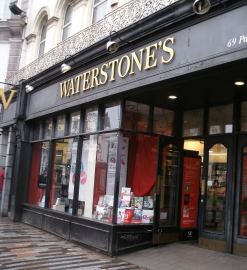 "I don't stop work until 5 p.m. on Christmas Eve. And then I'm in the right place... my wife will complain but, yes, everyone gets books for Christmas."
"I don't stop work until 5 p.m. on Christmas Eve. And then I'm in the right place... my wife will complain but, yes, everyone gets books for Christmas."
 "I don't stop work until 5 p.m. on Christmas Eve. And then I'm in the right place... my wife will complain but, yes, everyone gets books for Christmas."
"I don't stop work until 5 p.m. on Christmas Eve. And then I'm in the right place... my wife will complain but, yes, everyone gets books for Christmas."
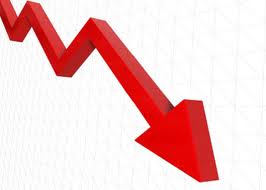 October bookstore sales fell 0.5%, to $728 million, compared to October 2013, according to preliminary estimates from the Census Bureau. The slip continues a trend for the year; August has been the only month in 2014 that showed a gain over the same month the previous year. For the year to date, bookstore sales have fallen 5.1%, to $9.3 billion. Total retail sales in October rose 4.9%, to $441.9 billion, compared to the same period a year ago. For the year to date, total retail sales have risen 4%, to $4,323 billion.
October bookstore sales fell 0.5%, to $728 million, compared to October 2013, according to preliminary estimates from the Census Bureau. The slip continues a trend for the year; August has been the only month in 2014 that showed a gain over the same month the previous year. For the year to date, bookstore sales have fallen 5.1%, to $9.3 billion. Total retail sales in October rose 4.9%, to $441.9 billion, compared to the same period a year ago. For the year to date, total retail sales have risen 4%, to $4,323 billion.
Note: under Census Bureau definitions, the bookstore category consists of "establishments primarily engaged in retailing a general line of new books. These establishments may also sell stationery and related items, second-hand books, and magazines."
 Last week, House Speaker John Boehner "dashed any hopes Main Street retailers had of getting a federal e-fairness solution passed during the lame-duck Congressional session," Bookselling This Week reported, adding that with a federal solution tabled at least until January, "it is likely that even more states will join such states as New York and California and pass their own sales tax fairness legislation to level the playing field and recoup lost sales tax."
Last week, House Speaker John Boehner "dashed any hopes Main Street retailers had of getting a federal e-fairness solution passed during the lame-duck Congressional session," Bookselling This Week reported, adding that with a federal solution tabled at least until January, "it is likely that even more states will join such states as New York and California and pass their own sales tax fairness legislation to level the playing field and recoup lost sales tax."
American Booksellers Association CEO Oren Teicher expressed strong disappointment with Boehner and House leadership "for disregarding the voice of small business and tabling sales tax fairness in the lame-duck session, especially considering the legislation had such wide bipartisan support. Promises of 'wait until next year' ignore the long-standing, inequitable strategic disadvantage that ABA's bookstore members and other Main Street retailers face. While we continue to strongly support a federal solution, we also expect that in the coming year states will take steps to level the playing field for all retailers, and we will support them in those efforts."
The ABA's E-Fairness Map shows that "out of the 45 states that collect sales tax, 33 have moved to recoup lost sales tax revenue by passing a law and/or striking a deal with Amazon.com to collect sales tax in exchange for opening a facility. Nineteen of the 33 states have passed some form of sales tax fairness law," BTW noted.
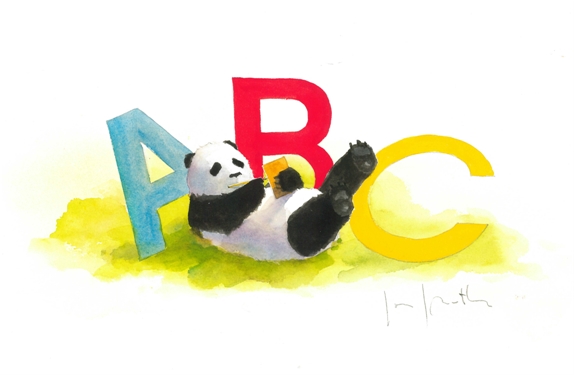 The holiday auction of children's book art, sponsored by the American Booksellers Foundation for Free Expression, raised more than $14,000 to support ABFFE's defense of the free speech rights of kids, an increase of 40% over last year. The auction included nearly 100 pieces by leading illustrators. Highest prices were paid for works by Jon Muth, Jared Chapman, William Wegman, Melissa Iwai, Eric Carle, Adam Rex, LeUyen Pham and Leslie Patricelli. One sold for $2,750.
The holiday auction of children's book art, sponsored by the American Booksellers Foundation for Free Expression, raised more than $14,000 to support ABFFE's defense of the free speech rights of kids, an increase of 40% over last year. The auction included nearly 100 pieces by leading illustrators. Highest prices were paid for works by Jon Muth, Jared Chapman, William Wegman, Melissa Iwai, Eric Carle, Adam Rex, LeUyen Pham and Leslie Patricelli. One sold for $2,750.
"We are delighted by the success of this year's holiday auction. We are so grateful to the artists who donated and to the booksellers who helped us promote the auction," said ABFFE president Chris Finan.
The auction, which is also held at the ABA Winter Institute and BookExpo America and is a mainstay of ABFFE's fundraising for the Kids' Right to Read Project, will continue next year after ABFFE becomes the ABFE Group at ABA.
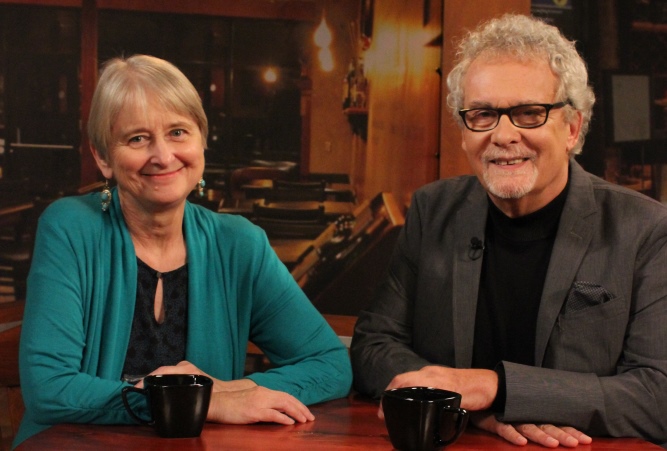 |
|
| Well Read hosts Mary Ann Gwinn and Terry Tazioli | |
The American Booksellers Association has formed a strategic partnership with Well Read, the weekly public television show hosted by Terry Tazioli and Mary Ann Gwinn that features conversations about books and authors. Bookselling This Week reported that "visitors to Well Read's website now see IndieBound included in the dropdown menu of purchasing options for featured titles. This includes titles presented on the weekly television show and selections for the monthly book club. The IndieBound logo and link is also present on Well Read's homepage and sub-pages, alongside those of the American Library Association, a fellow affiliate."
"This new partnership between ABA/IndieBound and the national public television series Well Read is built around a shared passion for reading with the objective to inspire and open minds to new ideas," said Tazioli. "The opportunity to work with ABA/IndieBound to support authors and share their stories with our mutual book-loving audience is priceless."
Two panels curated and moderated by We Need Diverse Books will be featured at BookCon 2015, scheduled for May 30 and 31 in New York City. 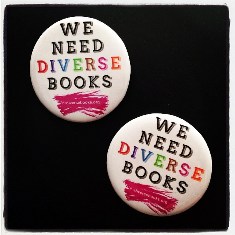 On May 30, the first panel will showcase science fiction and fantasy authors Kameron Hurley, Ken Liu, Nnedi Okorafor, Daniel Jose Older and Saga Press executive editor Joe Monti in a moderated conversation about the role diversity plays in the genre, their works and their influences. The following day, Jacqueline Woodson, Sherman Alexie, Libba Bray, David Levithan and Meg Medina will discuss children's literature.
On May 30, the first panel will showcase science fiction and fantasy authors Kameron Hurley, Ken Liu, Nnedi Okorafor, Daniel Jose Older and Saga Press executive editor Joe Monti in a moderated conversation about the role diversity plays in the genre, their works and their influences. The following day, Jacqueline Woodson, Sherman Alexie, Libba Bray, David Levithan and Meg Medina will discuss children's literature.
"We're thrilled that BookCon and We Need Diverse Books are teaming up once again to connect fans with a broader range of voices in the publishing industry," said show manager Brien McDonald. "These panels will once again move the conversation of diversity in books forward and highlight authors who are addressing this head on with their fantastic work."
"WNDB started with a handful of people and quickly spread through the world," said Aisha Saeed, v-p of strategy for We Need Diverse Books. "At BookCon this past May we were touched by the outpouring of support, thanks to this we are where we are today: launching initiatives to help change the face of children's literature."
Sidney Kramer, publisher, literary agent and co-founder of the Remarkable Book Shop in Westport, Conn., died on Wednesday, 06880 reported. He was 99.
Kramer and his wife, Esther, who died in 2011, ran Remarkable for more than three decades, until closing it in 1994. Before owning the store, Kramer was also a part-owner of Penguin Books, helped found Bantam Books, was president of New American Library and founded Mews Books, Ltd., a literary agency.
---
Gil Marks, "a culinary historian who wrote widely on the relationship between Jewish food and Jewish culture in a manner that was both scholarly and friendly," died last Friday, the New York Times reported. He was 62. His books included Encyclopedia of Jewish Food, Olive Trees & Honey: A Treasury of Vegetarian Recipes from Jewish Communities Around the World and The World of Jewish Cooking.
|
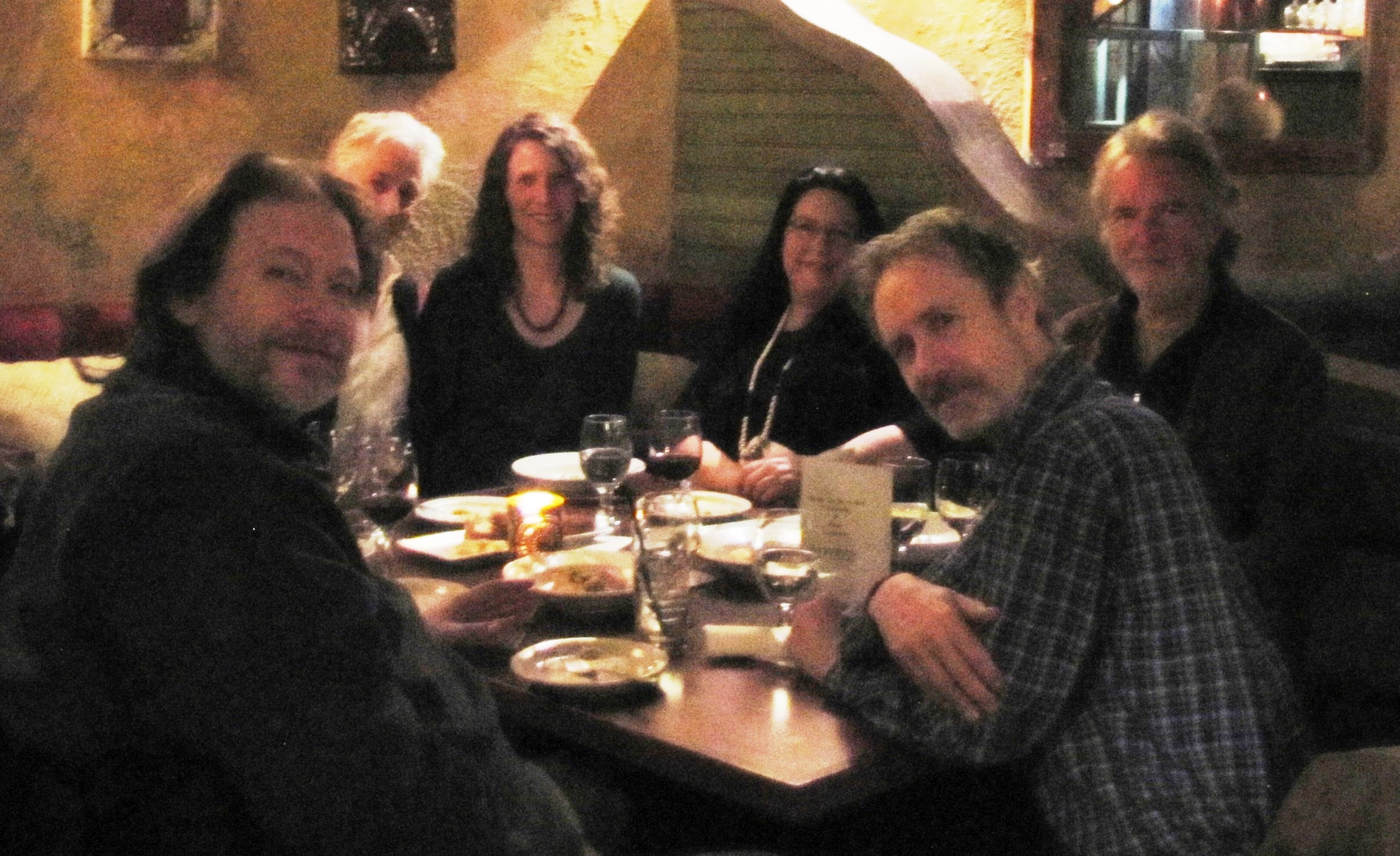 Wednesday evening, Rick Bragg appeared at Malaprop's in Asheville, N.C., to discuss his new biography, Jerry Lee Lewis: His Own Story (Harper). Afterward, a group of friends enjoyed dinner: (l.-r.) Bragg; Perseus/PGW rep Jon Mayes; Malaprop's manager Linda-Marie Barrett; Katherine Frazier; and authors Ron Rash and Charles Frazier.
Wednesday evening, Rick Bragg appeared at Malaprop's in Asheville, N.C., to discuss his new biography, Jerry Lee Lewis: His Own Story (Harper). Afterward, a group of friends enjoyed dinner: (l.-r.) Bragg; Perseus/PGW rep Jon Mayes; Malaprop's manager Linda-Marie Barrett; Katherine Frazier; and authors Ron Rash and Charles Frazier.
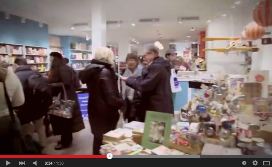
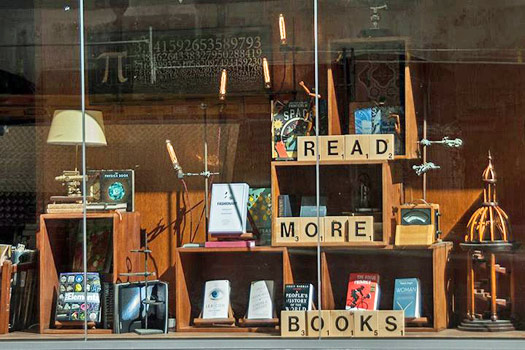 |
|
| Embiggen Books, Melbourne | |
Cheapflights featured "6 must-visit bookstores in Australia," noting that these "little slices of literature heaven are keeping the tradition of print publication well and truly alive, and their curators have lovingly added their own special touches."
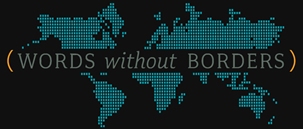 Joanne Leedom-Ackerman and Maaza Mengiste have joined the board of the directors of Words without Borders. WWB chair Samantha Schnee said, "We are thrilled to welcome two such talented individuals to our board of directors. Joanne and Maaza bring invaluable experience as writers, educators, board members and engaged public intellectuals, which will support Words without Borders as we grow our nascent education program in the coming years."
Joanne Leedom-Ackerman and Maaza Mengiste have joined the board of the directors of Words without Borders. WWB chair Samantha Schnee said, "We are thrilled to welcome two such talented individuals to our board of directors. Joanne and Maaza bring invaluable experience as writers, educators, board members and engaged public intellectuals, which will support Words without Borders as we grow our nascent education program in the coming years."
Author and journalist Leedom-Ackerman serves on the board of PEN American Center and the PEN/Faulkner Foundation in Washington, D.C. She is also on the board of directors of Poets and Writers, the International Crisis Group, the International Center for Journalists and Refugees International.
A Fulbright Scholar and award-winning author, Mengiste recently completed a documentary project, Girl Rising, with 10x10 Films, that focuses on girls' education globally.
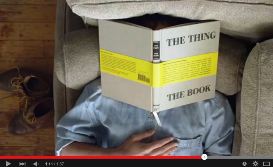
Today on the Rachael Ray Show: Chris Kimball of America's Test Kitchen will talk about The America's Test Kitchen New Family Cookbook ($40, 9781936493852).
---
Tomorrow on MSNBC's Daily Rundown: Erez Aiden, co-author of Uncharted: Big Data as a Lens on Human Culture (Riverhead, $16, 9781594632907).
---
Sunday on NPR's All Things Considered: Cece Bell, author and illustrator of El Deafo (Abrams, $10.95, 9781419712173).
"Welcome to the first meeting of the Morning Edition Reads book club!" NPR Books noted to introduce its new reading group: "Here's how it's going to work: A well-known writer will pick a book he or she loved. We'll all read it. Then, you'll send us your questions about the book. And about a month later, we'll reconvene to talk about the book with the author and the writer who picked it."
The first title, Deep Down Dark: The Untold Stories of 33 Men Buried in a Chilean Mine, and the Miracle That Set Them Free by Hector Tobar (FSG), was selected by Ann Patchett, author and co-owner of Parnassus Books, Nashville, Tenn.
"It's a riveting story," Patchett said. "It was riveting when we were watching it on the news, it's riveting in the book.... Even though we already know they're safe, there's an enormous amount of suspense and tension.... He's taking on all of the big issues of life. What is life worth? What is the value of one human life? What is faith? Who do we become in our darkest hour?"
During the next few weeks, readers can submit questions for Tobar on the Morning Edition Facebook page or tweet them using the hashtag #MorningReads. "When our club meets next month, your question might be read on air!"
 J.K. Rowling's Cormoran Strike novels, written under her pen name Robert Galbraith, will become a BBC One crime series. The Telegraph reported that The Cuckoo's Calling will be the first book adapted for BBC One, with filming set to begin early next year. Rowling will collaborate on the project, and casting for the lead role is under way.
J.K. Rowling's Cormoran Strike novels, written under her pen name Robert Galbraith, will become a BBC One crime series. The Telegraph reported that The Cuckoo's Calling will be the first book adapted for BBC One, with filming set to begin early next year. Rowling will collaborate on the project, and casting for the lead role is under way.
On Twitter, Rowling posted: "My friend @RGalbraith's first novel is going to be a TV drama on @BBCOne. He's very excited, but expressing it with characteristic silence."
"I am exactly as excited as he is," she said, adding that she felt compelled to "spread the word" for her "friend" Galbraith: "I've got to--he's hopeless, he can't even remember his Twitter password."
Danny Cohen, director of BBC television, said: "It's a wonderful coup for the BBC to be bringing J.K. Rowling's latest books to the screen. With the rich character of Cormoran Strike at their heart, these dramas will be event television across the world."
---
An international cast is set for BBC & Carnival's miniseries The Last Kingdom, based on Bernard Cornwell's book series the Saxon Stories, Deadline.com reported. The cast includes Alexander Dreymon, Rutger Hauer, Matthew Macfadyen, David Dawson, Emily Cox, Ian Hart, Tobias Santelmann, Thomas W. Gabrielsson, Peter Gantzler, Joseph Millson, Alexandre Willaume, Rune Temte and Henning Valin Jakobsen.
BBC's Ben Stephenson said The Last Kingdom "will feel like nothing else on television, with all of the scale and intrigue of the best fantasy stories but the reality of fact."
The longlist has been released for Canada's $25,000 (US$21,676) RBC Taylor Prize for Literary Nonfiction. A shortlist will be announced January 15 and the winning title March 2 at an awards ceremony in Toronto, where the winner will also announce his or her choice for the $10,000 RBC Taylor Prize Emerging Writer's Award. You can find the complete longlist here.
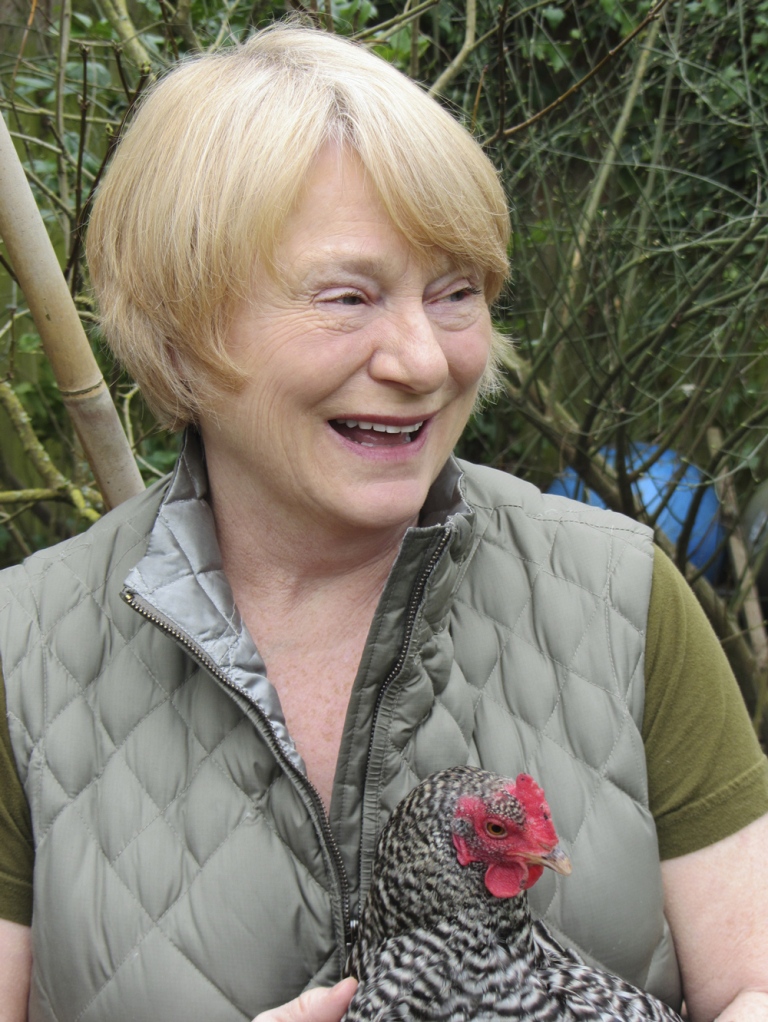 |
|
| photo: Marie Fredericks | |
Judy Dailey grew up on an 80-acre organic farm in Indiana and now lives on a 1,200-square-foot urban farm in Seattle, Wash., with her husband, six chicken and a dog. She has been a pilot, skydiver, spelunker, bicyclist, skier and night-time sailor, and managed a multimillion-dollar grant fund for affordable housing. She handcrafts artisan salami, beer and ricotta cheese. Her first mystery in the Urban Farm Series, Animal, Vegetable, Murder, was published in 2013. Forget You Ever Knew Me (just published by Five Star) is a suspense novel set in 1952.
On your nightstand now:
The Chemistry of Alchemy by Cathy Cobb, Monty Fetterolf and Harold Goldwhite. Besides mysteries, I enjoy books on subjects I know almost nothing about, like chemistry and alchemy. I don't always manage to finish them, but [this book has] a light-hearted approach that has kept me engaged. Also, I'm learning how to make gold in my kitchen from common household ingredients. How cool is that?
Three Graves Full by Jamie Mason. This book was recommended by my local independent bookstore, Third Place Books Ravenna in Seattle. My critique group meets there every Tuesday evening, and I almost always walk out with a staff pick. The first line of this book grabbed me: "There is very little peace for a man with a body buried in his backyard."
Lexicon by Max Barry. Also a staff pick from Third Place Books, it's billed as a "perfect cerebral thriller." Can't wait.
Scatter, Adapt, and Remember by Annalee Newitz. I am very concerned about global climate change; I've just read enough of this book to begin to see glimmers of hope.
Favorite book when you were a child:
The Secret Garden by Frances Hodgson Burnett--but only the first 75%, before all the philosophizing begins! I have always been fascinated by the power of secrets to change everything we know or believe about our lives. My mother died under mysterious circumstances when I was four years old. Even worse, my father and grandmother absolutely refused to discuss her life or her death. I investigated but never solved the mystery of my mother's death, but while writing Forget You Ever Knew Me, I discovered that fiction can be more insightful about the human heart than any recounting of facts.
Your top five authors:
P.G. Wodehouse. I started reading Wodehouse in the sixth grade, long before I understood all the jokes. He is a master of sleight-of-hand plotting and quick character sketches. He's my comfort-food author--when it's cold and rainy, I settle down in front of the fireplace with Pigs Have Wings or Right Ho, Jeeves and a cup of hot tea.
Peter Dickinson wrote intelligent and complicated stories steeped in postwar English society. His plots slowly and carefully curl back on themselves, so that the opening chapters have a different meaning by the time the story is finished.
There are several new mystery writers I hope will become favorites. Chief among these is Leonard Rosen, whose debut, All Cry Chaos, is a mind-stimulating brew of mathematical theory, international intrigue and unforgettable characters. I enjoyed Steve Hamilton's series about Alex McKnight, but The Lock Artist is his breakout book. S.J. Bolton's Lacey Flint stories aren't being written fast enough to suit me. Set in London with grim, interlocking stories and a wounded protagonist, they are an intriguing blend of romance and suspense--but never romantic suspense.
Book you've faked reading
Ulysses by James Joyce and Homer's Odyssey. Both were required reading at Bryn Mawr. I even fell asleep during the X-rated 1967 movie of Ulysses after lying my way in (I was underage). On the other hand, I loved how Reginald Hill played with the myth of Odysseus in his classic Arms and the Women to lend depth to both the hero (Andy Dalziel) and the villain.
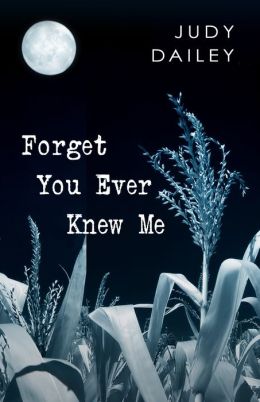
The second half of Stephen King's On Writing is the most encouraging and useful discussion of how to be an author that I've ever read. It's the book I recommend when aspiring writers ask, "How did you get published?" King points out that successful writers do not have to be geniuses, but they do have to commit to writing every day in the same place at the same time. That's when creativity flows.
Book you've bought for the cover:
Everything I Need to Know I Learned from a Little Golden Book by Diane Muldrow. The cover shows a 1950s housewife, hatted, gloved and glowing in satisfaction with her role as wife and mother. The book, with the familiar gold binding, consists of page after page of illustrations from the Golden Books I remember from my childhood. Paging through it now, I'm struck by the lack of diversity. The 1950s both attract and repulse me because the appealing social veneer covered so many sins. That's why I chose to explore this period in Forget You Ever Knew Me.
Book that changed your life:
I read The Selfish Gene by Richard Dawkins in graduate school and it gave me a tool or a methodology for examining and understanding the world.
Favorite line from a book:
In Tana French's The Secret Place, Finn, a high-school-age boy, concludes, "It's pretty unlikely, just mathematically, that we're living in the one single era that happens to finally have everything figured out." I love this idea. When we become wrapped up in the crisis du jour, it's important to have a historical perspective to separate the urgent from the important.
Which character you most relate to:
Deanna Wolfe, the forest ranger in Prodigal Summer by Barbara Kingsolver. I want to be that strong, independent, solitary woman who knows her world in minute and scientific detail, but who also is open to love and life.
Book you most want to read again for the first time:
I've enjoyed most of Tana French's books but I was completely blown away by The Secret Place. The imagery is unforgettable, and she moves effortlessly from past to present, from third person to first person, and the plot unravels flawlessly. Finally, I loved the theme of girls struggling to become women in charge of their own fate.
Letter to Jimmy by Alain Mabanckou (Soft Skull Press, $14.95 trade paper, 9781593766016, December 16, 2014)
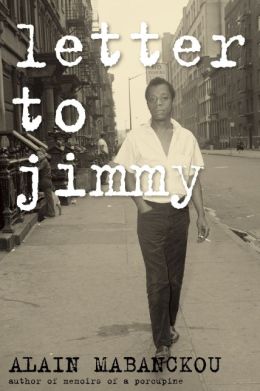
While his reflections on Baldwin include many footnoted references to existing biographies as well as quotations from Baldwin himself, Mabanckou's focus is not biographical. Rather, it is on his own search within Baldwin's life and work for better understanding of the roles race, expatriation and social isolation play in the writing of a modern black man. In this exploration, he latches on to Baldwin's insistence that literature must be more than protest (in Baldwin's words: "all literature may be protest... but not all protest is literature") when he criticized the work of black intellectual giants like Richard Wright and Malcolm X. Mabanckou applies this conclusion to his own struggle with "child soldier" or "Rwandan genocide" literature where "an African author will be able to do nothing but await the next disaster on his continent before starting a book in which he will spend more time denouncing than writing."
Among its many rewards, Letter to Jimmy enriches the conversations begun by notable African novelists like Chimamanda Ngozi Adichie and Camara Laye regarding the cultural and historical differences between black Americans and expatriate black Africans. In the cases of Mabanckou and Baldwin, for example, the French have been more accepting of blacks whose homeland is the United States than those from former French colonies. Mabanckou suggests that "black Americans and Africans are strangers to one another... Africans want to drive out the colonizers; black Americans are fighting simply to be recognized as full citizens."
The expatriate Baldwin, ostracized at home for his illegitimate birth, homosexuality and race, recognized that the nuances of racism and a globally diverse black diaspora made the "black literature of protest" written by his U.S contemporaries a shallow well. Mabanckou faces similar concerns and rejects the notion that "the black writer is expected to put the 'black issue' at the center of his work, expected to crowd his pages with characters of color, to adopt a confrontational tone, with the white man as his sole target." With great admiration, he praises Baldwin for the individuality of his work in the face of social and political headwinds (one chapter title sums up Baldwin's obstacles: "black, bastard, gay and a writer"). Mabanckou should likewise be praised for raising tough questions about race and art--and exploring the answers so fearlessly. --Bruce Jacobs, founding partner, Watermark Books & Cafe, Wichita, Kan.
Shelf Talker: Winner of several French literary prizes, Alain Mabanckou explores the impact of his literary antecedent James Baldwin and the challenges facing black writers--both U.S. citizens and expatriate Africans.
Scene: Me, standing behind the checkout counter in a bookstore.
Customer: Are you a cash register?
Me: No, but I'm thinking of becoming one. I hear there's a lot of money in it.
It's a bad joke, but I'll confess I used it a few times during my tenure as a bookseller. Usually it got a laugh, or at least a smile. Not surprisingly, "the most wonderful time of the year" featured prominently in most of these encounters. 'Tis the season that tends to bring out the best and worst in customers, as well as booksellers.
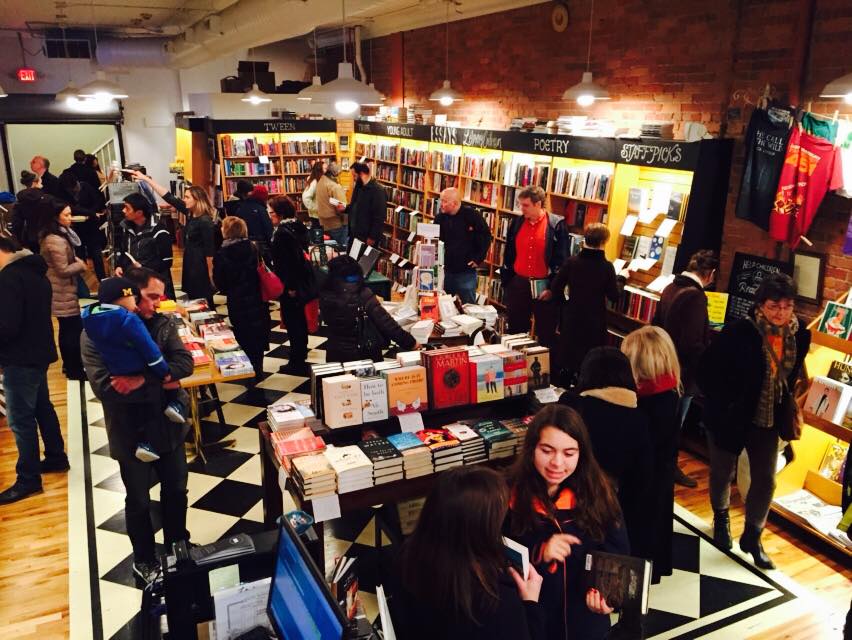 |
|
| Holiday shoppers at Literati in Ann Arbor, Mich. |
|
You may have noticed.
This is just a theory, but I suspect most prospective booksellers underestimate the amount of time they'll spend as cashiers. That duty tends to be soft-pedaled during the interview process, since in this vow-of-poverty, passion-driven profession, accentuating the positive is the rule. It just makes sense to showcase the glories of handselling, the avalanche of unlimited ARCS and the distinguished company of well-read colleagues, while the interviewee clings to sugar plum visions of a "dream job," featuring serene hours lost in the stacks that are occasionally, yet gently. interrupted to handsell the perfect book to its perfect reader.
The holiday season can be a serious wake-up call. In the heat of retail battle, a little voice whispers, "This isn't what I signed up for." But quickly you learn to become the person your customers need you to be in that moment. And why not? Booksellers love their customers because they can't afford not to, and because booksellers and their patrons are nice people, mostly. In fact, the worst customer I ever dealt with as a bookseller was better than the average customer I encountered working in supermarkets. People go to grocery stores because they have to. Most go to bookstores because they want to. It's a significant difference.
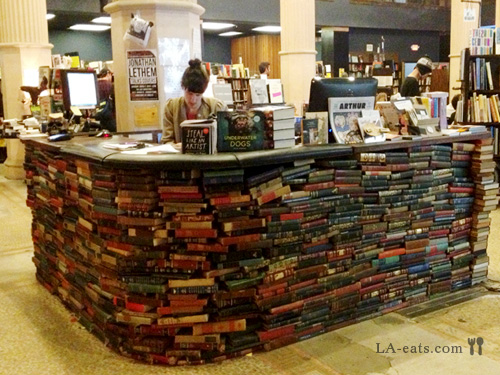 |
|
| Cash registers at the Last Bookstore, Los Angeles. | |
I was a good handseller, but I was a great cashier, having started young at the local A&P during high school. Customers used to line up at my register because I was fast, and proud of it. One of my favorite chapters in Studs Terkel's Working is the profile of Babe Secoli, a supermarket checker who says: "It's hard work, but I like it. This is my life.... I'm just movin'--the hips, the hand, and the register, the hips, the hand, and the register.... You just keep goin', one, two, one, two. If you've got that rhythm, you're a fast checker. Your feet are flat on the floor and you're turning your head back and forth.... If somebody interrupts to ask me the price, I'll answer while I'm movin'. Like playin' a piano."
I get that.
And so I decided it would be appropriate to ring in the holiday season with words of praise for you, the bookseller/cashier. In the crazed, checkout counter nucleus of the holiday rush, you just handle it as those customers stampede your way. Often you wonder how so many people manage to arrive at your cash register simultaneously. And then they keep coming, wave after wave, until--despite your best intentions and the spirit of the season--they begin to merge into a single, multi-limbed organism, and what you see when you look out from behind the counter are piles of books, sidelines, toys, calendars, greeting cards and imposing stuffed animals bigger than the child they are meant for. You're in a Ralph Steadman drawing, and there's no escape.
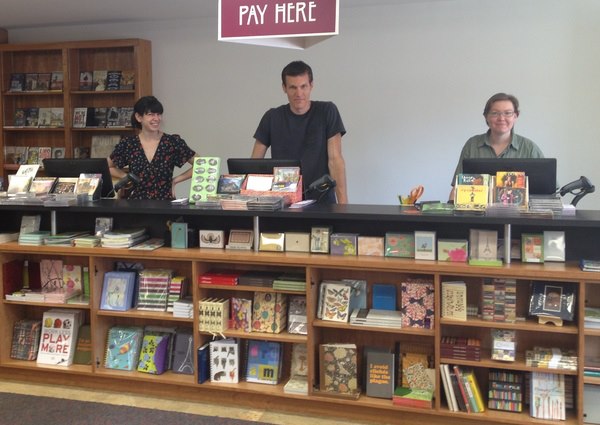 |
|
| Cashiers at Politics & Prose in Washington. D.C., stand ready to help | |
A bookseller/cashier is not a specialist. The questions hit you from all sides and some of them are repeated dozens of times: Is Emily St. John Mandel's Station Eleven as good as they say? Does Amy Poehler's Yes Please come in paperback? Why isn't Cheryl Strayed's Wild with the fiction bestsellers? Do you carry The Innovators by Isaac Walker? (Do you mean Walter Isaacson? No, that's not what I wrote down.) Could you page my wife, husband, kid? Where's your rest room? You are asked to wrap the unwrappable and box the unboxable.
Standing alertly behind your besieged cash register, you're the only representative of the publishing industry that most of these people will ever meet. So you do your best to smile and chat while your hands repeat a series of long-practiced, fluid and instinctive movements with the dexterity of a casino card dealer.
Sometimes, in rare moments of illusory calm, you take a break to straighten shelves and displays. You restock. You fling yourself recklessly into the throng to handsell your favorite books of the year. And you do all of this without abandoning your base camp--that at once cursed and blessed cash register. As Babe Secoli so wisely said, "I enjoy it somethin' terrible." --Robert Gray, contributing editor (column archives available at Fresh Eyes Now)